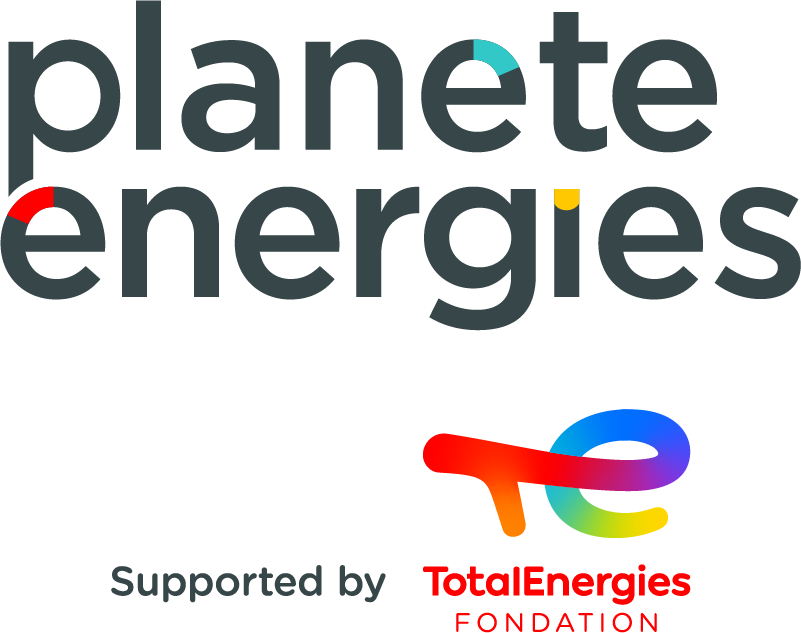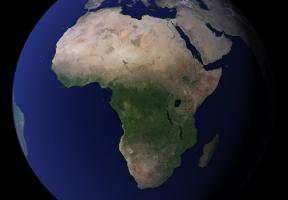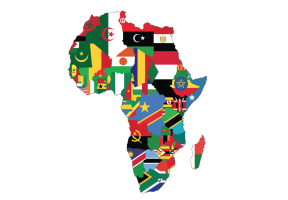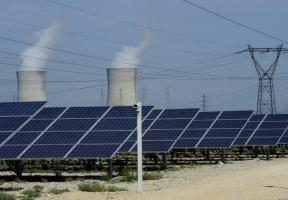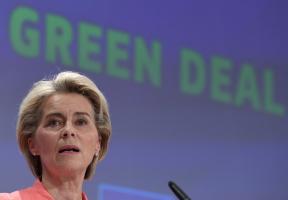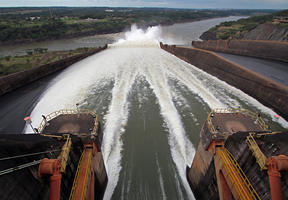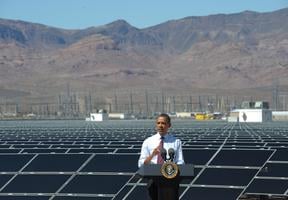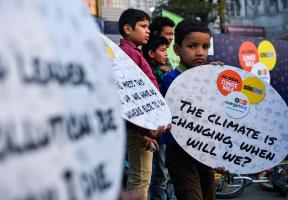Climate Action Institutions and Stakeholders
10 min read
Since the 1992 United Nations Framework Convention on (UNFCCC), the international community has created a number of institutions and tools to lead its fight against . This article describes some of the main global negotiation mechanisms.
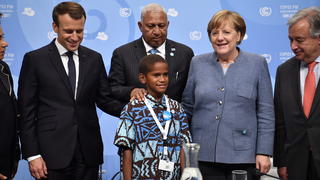
© John MACDOUGALL / AFP - Opening speech during COP23.
Earth Summits
Earth Summits are U.N.-sponsored meetings of worldwide leaders held every 10 years to develop guidelines. The first of these highly symbolic, closed-circle gatherings took place in Stockholm (1972), followed by Nairobi (1982), Rio de Janeiro (1992) – which gave a powerful impetus to climate action – and Johannesburg (2002). The last meeting, referred to as Rio+20, was held in 2012 for the second time in Brazil. In 2022, the meeting will take place in Stockholm, on june 2 and 3.
Conference of the Parties (COP)
During the 1992 Earth Summit in Rio de Janeiro, the United Nations set up a Framework Convention on Climate Change, known by the acronym UNFCCC1. This universal convention brings together 197 parties, including the European Union (alongside its member states).
Every year since 1995, their representatives have attended a Conference of the Parties, held on a rotating basis in one of the five U.N. regions, to review the Convention's application and negotiate new commitments. Certain conferences have had a strong historical impact:
- COP3 (1997): The Kyoto Climate Conference gave way to the , which for the first time set emissions targets for industrialized countries.
- COP15 (2009): Although the overall outcome was disappointing, the Copenhagen Climate Conference set a common goal of limiting global warming to 2°C.
- COP21 (2015): This meeting resulted in the Paris Agreement, the first accord to be signed by all the countries of the world.
Intergovernmental Panel on Climate Change (IPCC)
The was founded by the United Nations in 1988. Made up of hundreds of experts, its goal is to provide detailed assessments of the current state of scientific knowledge relating to climate change. The IPCC is not a research center but rather a forum that compiles climate-related research conducted in laboratories throughout the world. Since its founding, the IPCC has published six general reports, which are divided into several volumes, and four specific reports. They do not prescribe policy – that's each government's role – but rather provide national leaders with the tools they need to make informed decisions. In liaison with the different countries, the IPCC publishes carefully worded executive summaries intended for decision makers.
Green Climate Fund (GCF)
First mentioned at the Copenhagen Conference in 2009, the Green Climate Fund is an operating entity of the Financial Mechanism of the UNFCCC. Its purpose is to transfer funds from the most advanced countries to the most vulnerable nations in order to implement projects aimed at countering climate change. The GCF was set up in Incheon , South Korea. Its board is comprised of members from both industrialized and developing countries.
A Host of Meetings
Symbolic events and meetings bringing together a variety of stakeholders have risen in number over the years.
The United Nations organizes collective actions on a regular basis. One such undertaking, a series of decentralized initiatives carried out by regions, businesses and ordinary citizens called the Agenda of Solutions, was launched in September 2014. These new climate players organize many stakeholder-specific initiatives to advance the climate change agenda.
Earth Day has been celebrated every year since it was first observed on April 22, 1970. In 2016, Earth Day coincided with the signing ceremony of the Paris Agreement. In 2007, the WWF (formerly World Wildlife Fund or World Wide Fund for Nature) organized Earth Hour, a worldwide lights-off event held every year on the last Saturday of March.
The Conference of the Parties (COP) is held each year in a capital city on a rotating basis in one of the U.N.'s five regional groups of member states (Asia-Pacific, Eastern Europe, Latin America and Caribbean, Western Europe and Other and Africa).
- 1995 : Berlin Climate Conference (COP1)
- 1996 : Geneva Climate Conference (COP2) - Angela Merkel, German Minister of the Environment at the time, opened the talks.
- 1997 : Kyoto Climate Conference (COP3) - the Kyoto Protocol came out of these talks.
- 1998 : Buenos Aires Climate Conference (COP4)
- 1999 : Bonn Climate Conference (COP5)
- 2000 : The Hague Climate Conference (COP6) - held in November 2000, these talks broke down following sharp disagreements with the United States and were re-started in Bonn in July 2001.
- 2001 : Marrakesh Climate Conference (COP7)
- 2002 : New Delhi Climate Conference (COP8)
- 2003 : Milan Climate Conference (COP9)
- 2004 : Buenos Aires Climate Conference (COP10)
- 2005 : Montreal Climate Conference (COP11)
- 2006 : Nairobi Climate Conference (COP12)
- 2007 : Bali Climate Conference (COP13) - these talks opened negotiations on a follow-up to the Kyoto Protocol.
- 2008 : Poznań Climate Conference (COP14)
- 2009 : Copenhagen Climate Conference (COP15) - with numerous heads of state present, these talks set the tenable increase in the global temperature at 2°C, but did not provide details on how to remain below this threshold.
- 2010 : Cancun Climate Conference (COP16) - these talks resulted in the "Green Climate Fund".
- 2011 : Durban Climate Conference (COP17) - it was here that the process began that was expected to culminate in Paris.
- 2012 : Doha Climate Conference (COP18)
- 2013 : Warsaw Climate Conference (COP19)
- 2014 : Lima Climate Conference (COP20)
- 2015 : Paris Climate Conference (COP21)
- 2016 : Marrakesh Climate Conference (COP22)
- 2017 : Bonn Climate Conference, chaired by Fiji (COP23)
- 2018 : Katowice Climate Conference (Poland) (COP24)
- 2019 : Madrid Climate Conference, chaired by Chile (COP25)
- 2020 : postponed due to the Covid-19 pandemic
- 2021 : Glasgow Climate Conference (United Kingdom) (COP26)
- 2022 : Charm el-Cheikh Conference (Egypt) (COP27)
- 2023 : Dubaï Conference (UAE) (COP28)
- 2024 : Baku Conference (Azerbaijan) (COP29)
- 2025 : Belem (Brasil) (COP30)
Source: (1) UNFCCC
